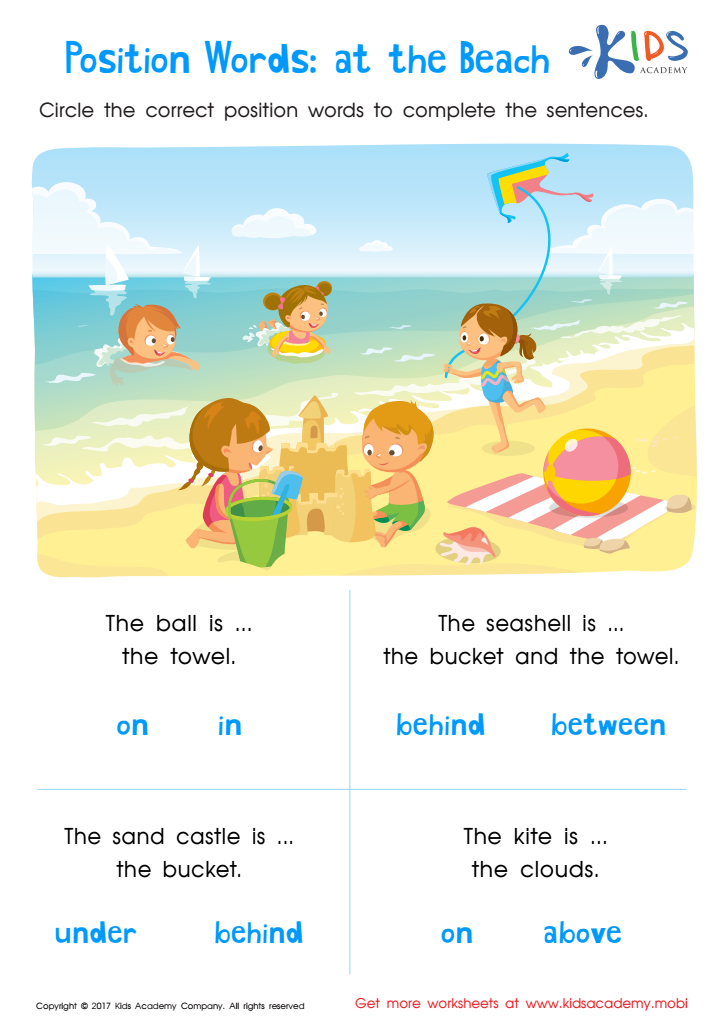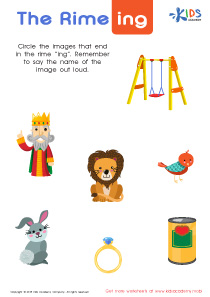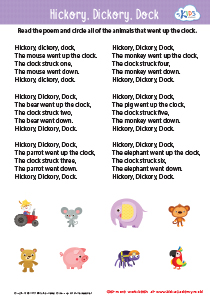Reading comprehension Extra Challenge Building Vocabulary Worksheets for Ages 7-8
7 filtered results
-
From - To
Enhance your child's reading skills with our "Reading Comprehension Extra Challenge: Building Vocabulary Worksheets" designed for ages 7-8. These engaging worksheets offer fun exercises tailored to help young learners expand their vocabulary while honing their comprehension abilities. Each worksheet presents thought-provoking questions and captivating stories, encouraging critical thinking and deeper understanding of texts. Ideal for classroom use or at-home practice, these resources support varied learning styles and reinforce essential skills critical for academic success. Help your child become a confident reader with our carefully crafted challenges that make learning both effective and enjoyable. Dive into our worksheets and watch their vocabulary flourish!
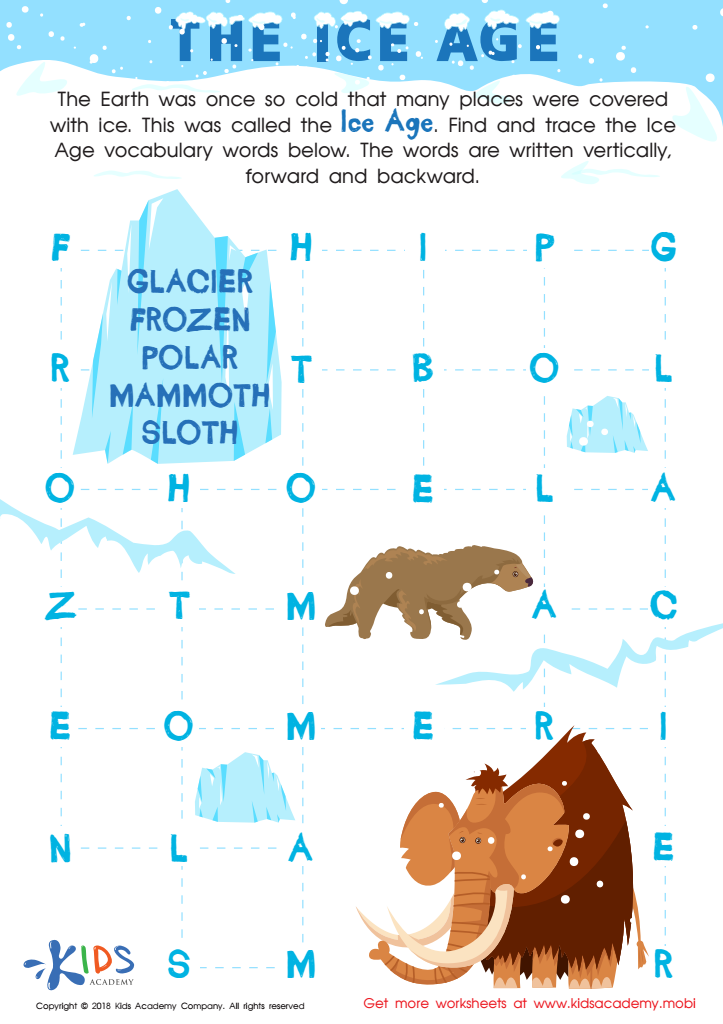

The Ice Age Worksheet
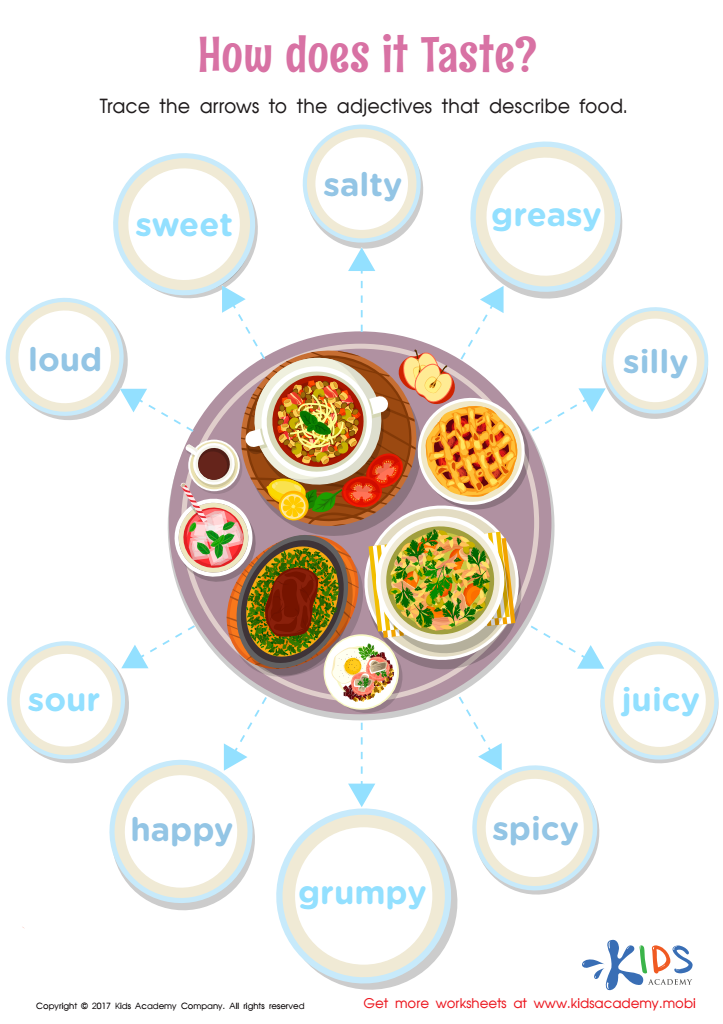

Food Adjectives Worksheet
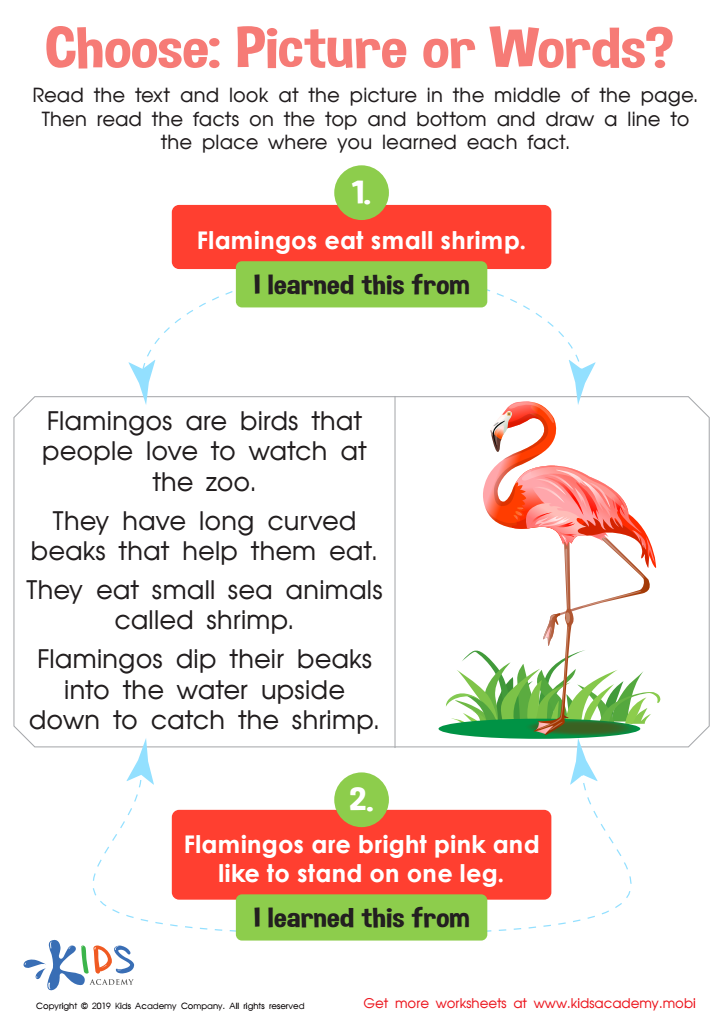

Choose Picture Words Worksheet
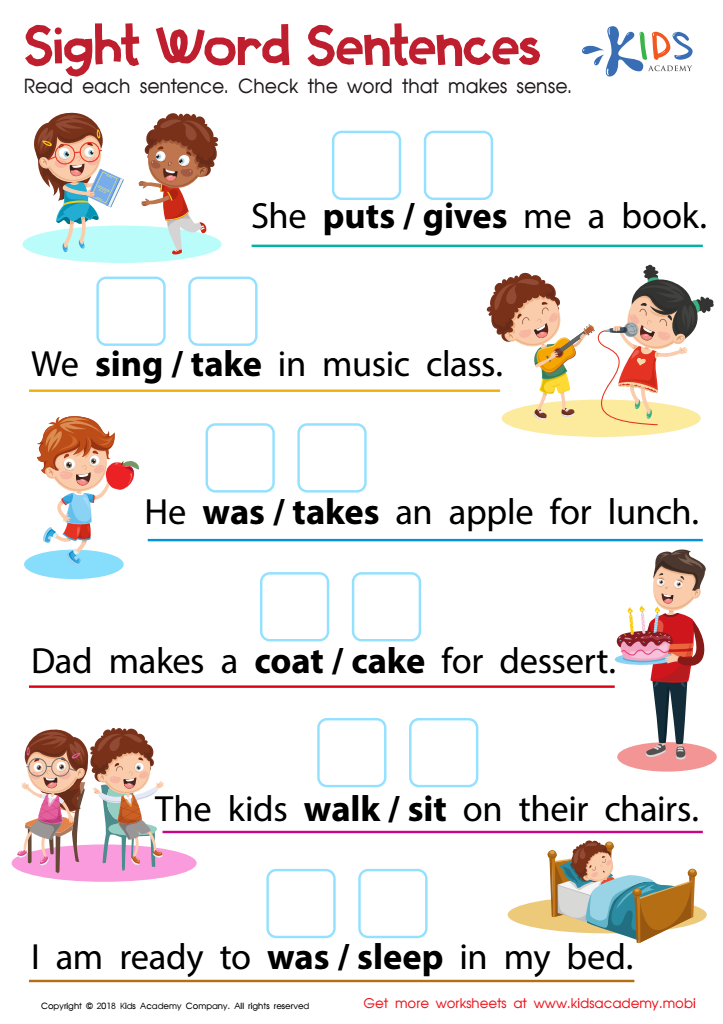

Sight Words Sentences Worksheet
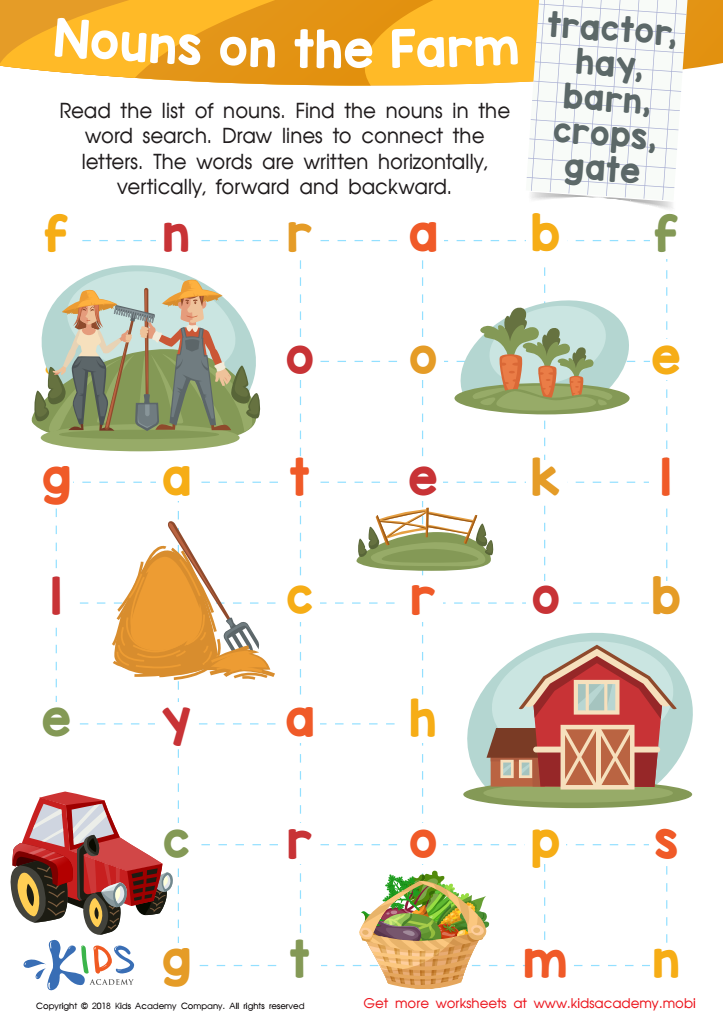

Nouns on the Farm Worksheet
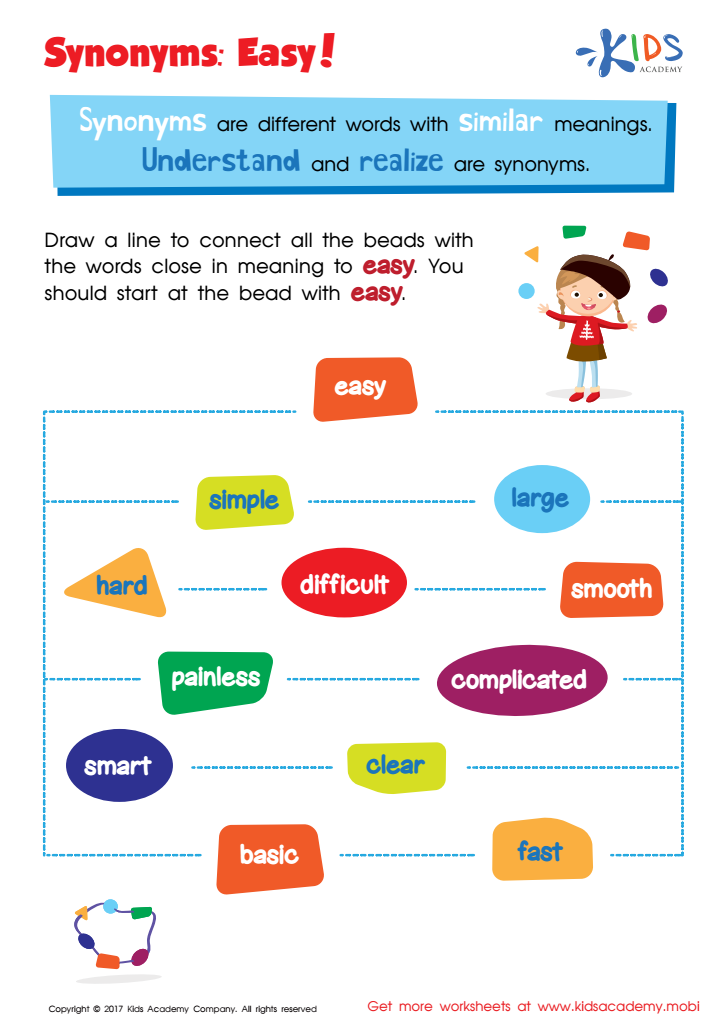

Free Synonym Worksheet
Reading comprehension is a crucial skill that forms the foundation for a child's overall academic success. For children aged 7-8, enhancing their comprehension abilities goes hand-in-hand with vocabulary development, creating a more enriching learning experience. Parents and teachers should prioritize these aspects for several important reasons.
Firstly, a strong vocabulary allows children to better understand and engage with the texts they encounter. When children have a large pool of words and meanings at their disposal, they can comprehend more complex narratives, increasing their enjoyment and appreciation for reading. Moreover, robust vocabulary skills empower children to articulate their thoughts and ideas clearly, both in speaking and writing.
Secondly, effective reading comprehension strategies enable children to make connections, draw conclusions, and critically analyze information. This not only aids academic performance but also cultivates essential life skills like problem-solving and critical thinking.
Finally, consistent vocabulary building and comprehension practice fosters a love of learning. When children enjoy reading and feel confident in their abilities, they are more likely to explore diverse subjects, fostering curiosity and intellectual growth.
In essence, early interventions in reading comprehension and vocabulary development set the stage for a child's future learning opportunities and success in all areas of their education.
 Assign to My Students
Assign to My Students











